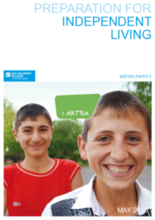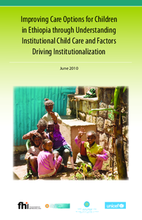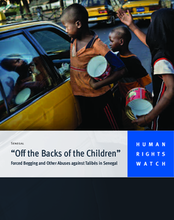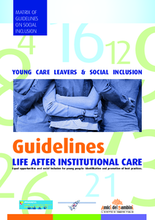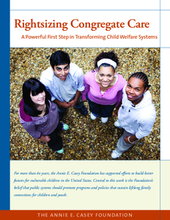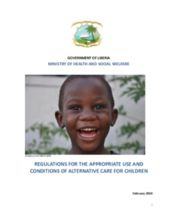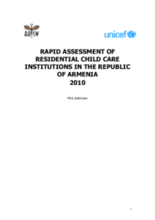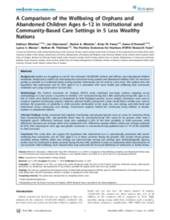Displaying 651 - 660 of 772
The "I Matter Campaign" advocates for support for young people ageing out of care. The second edition of the "I Matter" briefing paper, published by SOS Children's Villages, focuses on young people's involvement in the campaign.
Findings and recommendations of the first national study of its kind in Ethiopia to study child care institutions, institutionalized children, and factors driving institutionalization.
This study evaluated data of 123 children with and without disabilities in residential care to determine demographic, behavioral, mental health, and educational characteristics.
This report is based on 11 weeks of field research in Senegal and Guinea-Bissau between November 2009 and February 2010.
In response to the increased social exclusion affecting youth leaving care, Amici de Bambini developed Matrix of Guidelines for Life after Institutional Care, which can be used to increase the likelihood of social inclusion for young people who have been released from the child protection system.
This new report from the Annie E. Casey Foundation outlines initiatives in four sites to help child welfare systems reduce institutional placements, improve outcomes, and support community services by changing the array of services, frontline practice, finances, performance management, and policy
Regulations and tools designed to create the basis for reforming welfare institutions for the safe and appropriate administration of alternative care.
The study covers all residential child care institutions operating in Armenia, with the purpose of creating a basic baseline for further analysis required for the progressive reduction of placement of children and the development of alternative child care services. The aim of the assessment is to verify the situation of each child in relation to their families, and the respect of their entitlements related to their specific condition.
This article explores the experience of institutionalization of Romanian children and Bronfenbrenner’s Ecological System Theory.
Global policy makers are advocating that institution-living orphans and abandoned children (OAC) be moved as quickly as possible to a residential family setting and that institutional care be used as a last resort.

